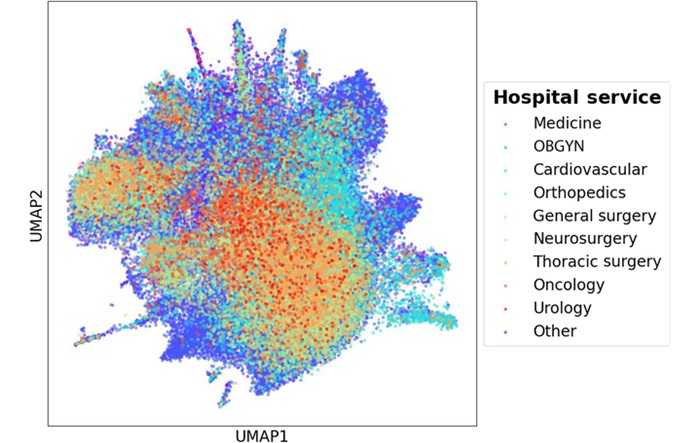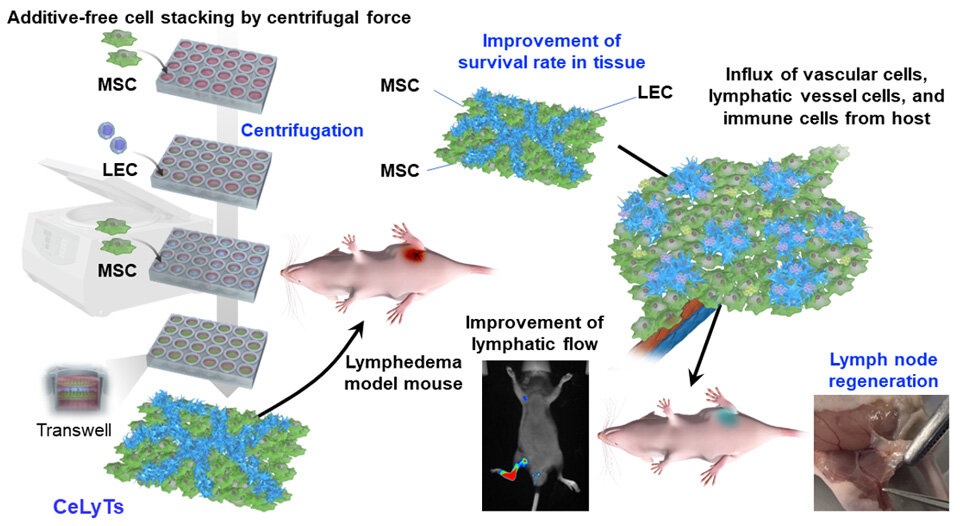AI-Powered Prediction Model Enhances Blood Transfusion Decision-Making in ICU Patients
|
By HospiMedica International staff writers Posted on 23 Jan 2025 |

Blood transfusions are vital for managing anemia and coagulopathy in intensive care unit (ICU) settings, though current clinical decision support systems generally focus on specific patient subgroups or isolated transfusion types. This limitation affects timely and accurate decision-making in high-pressure ICU environments. Researchers have now developed a groundbreaking artificial intelligence (AI) model that can accurately predict the possibility of blood transfusion in non-traumatic ICU patients. The newly developed AI model overcomes existing barriers by analyzing a wide range of clinical features, including lab results and vital signs, to predict transfusion requirements within a 24-hour window. Published in Health Data Science, the study resolves longstanding challenges in predicting transfusion needs across diverse patient groups with varying medical conditions.
The AI model was developed by a research team at Emory University (Atlanta, GA, USA) utilizing a large dataset of over 72,000 ICU patient records spanning five years. By integrating machine learning techniques and a meta-model ensemble approach, the AI system achieved exceptional performance metrics, including an area under the receiver operating characteristic curve (AUROC) of 0.97, an accuracy rate of 0.93, and an F1 score of 0.89. The team rigorously evaluated the AI model across multiple scenarios to ensure its robustness and reliability in real-world applications.
The AI model demonstrated a consistent performance across different ICU cohorts and medical conditions. Going forward, the team will integrate this AI model into clinical workflows for real-time decision support, further validating its effectiveness in practical ICU settings. Their ultimate goal is to personalize and optimize transfusion strategies, enhancing patient care and operational efficiency in hospitals. This study represents a significant step forward in the application of AI to critical care medicine, highlighting the potential of data-driven technologies to transform healthcare delivery.
“Our model not only accurately predicts the need for a blood transfusion but also identifies critical biomarkers, such as hemoglobin and platelet levels, that influence transfusion decisions,” said lead author Alireza Rafiei. “This capability provides clinicians with a reliable decision-support tool, potentially improving patient outcomes and resource allocation in ICU settings.”
Latest Critical Care News
- Intranasal Spray to Prevent Illnesses from Respiratory Viruses
- Gut Bacteria from Amphibians and Reptiles Show Complete Tumor Elimination
- High-Dose Inhaled Nitric Oxide Emerges as Promising Antimicrobial Therapy
- AI Risk Prediction Tool Improves Treatment of Cancer Patients after Heart Attack
- Glowing Bacterial Sensors Could Improve Detection of Gut Illness
- Innovative ‘Poop Pills’ Dramatically Improve Cancer Treatment

- New Nanomaterial Kills Cancer Cells While Sparring Healthy Tissues
- AI Model Accurately Predicts Neurological Recovery After Cardiac Arrest
- Battery-Free Nano-Sensors Pave Way for Next-Generation Wearables
- Imaging Technology Detects Early Signs of Cardiovascular Risk Through Skin
- New Therapeutic Approach Marks Breakthrough in Pediatric Heart Disease
- AI Model Accurately Identifies Prediabetics Using Only ECG Data
- Injectable Disease-Fighting Nanorobots to Improve Precision Cancer Therapy
- Web-Based Tool Enables Early Detection and Prevention of Chronic Kidney Disease
- Tiny Sensor to Transform Head Injury Detection
- Bacterial Behavior Breakthrough to Improve Infection Prevention in Biomedical Devices
Channels
Artificial Intelligence
view channelSurgical Techniques
view channel
Surgical Innovation Cuts Ovarian Cancer Risk by 80%
Ovarian cancer remains the deadliest gynecological cancer, largely because there is no reliable screening test, and most cases are diagnosed at advanced stages. Thousands of patients die each year as treatment... Read more
New Imaging Combo Offers Hope for High-Risk Heart Patients
Patients with type 2 diabetes often develop complex, severe coronary artery disease involving multiple narrowed or blocked arteries, making complete revascularization difficult. Without detailed functional... Read morePatient Care
view channel
Revolutionary Automatic IV-Line Flushing Device to Enhance Infusion Care
More than 80% of in-hospital patients receive intravenous (IV) therapy. Every dose of IV medicine delivered in a small volume (<250 mL) infusion bag should be followed by subsequent flushing to ensure... Read more
VR Training Tool Combats Contamination of Portable Medical Equipment
Healthcare-associated infections (HAIs) impact one in every 31 patients, cause nearly 100,000 deaths each year, and cost USD 28.4 billion in direct medical expenses. Notably, up to 75% of these infections... Read more
Portable Biosensor Platform to Reduce Hospital-Acquired Infections
Approximately 4 million patients in the European Union acquire healthcare-associated infections (HAIs) or nosocomial infections each year, with around 37,000 deaths directly resulting from these infections,... Read moreFirst-Of-Its-Kind Portable Germicidal Light Technology Disinfects High-Touch Clinical Surfaces in Seconds
Reducing healthcare-acquired infections (HAIs) remains a pressing issue within global healthcare systems. In the United States alone, 1.7 million patients contract HAIs annually, leading to approximately... Read moreHealth IT
view channel
EMR-Based Tool Predicts Graft Failure After Kidney Transplant
Kidney transplantation offers patients with end-stage kidney disease longer survival and better quality of life than dialysis, yet graft failure remains a major challenge. Although a successful transplant... Read more
Printable Molecule-Selective Nanoparticles Enable Mass Production of Wearable Biosensors
The future of medicine is likely to focus on the personalization of healthcare—understanding exactly what an individual requires and delivering the appropriate combination of nutrients, metabolites, and... Read moreBusiness
view channel
Medtronic to Acquire Coronary Artery Medtech Company CathWorks
Medtronic plc (Galway, Ireland) has announced that it will exercise its option to acquire CathWorks (Kfar Saba, Israel), a privately held medical device company, which aims to transform how coronary artery... Read more
Medtronic and Mindray Expand Strategic Partnership to Ambulatory Surgery Centers in the U.S.
Mindray North America and Medtronic have expanded their strategic partnership to bring integrated patient monitoring solutions to ambulatory surgery centers across the United States. The collaboration... Read more
FDA Clearance Expands Robotic Options for Minimally Invasive Heart Surgery
Cardiovascular disease remains the world’s leading cause of death, with nearly 18 million fatalities each year, and more than two million patients undergo open-heart surgery annually, most involving sternotomy.... Read more
















